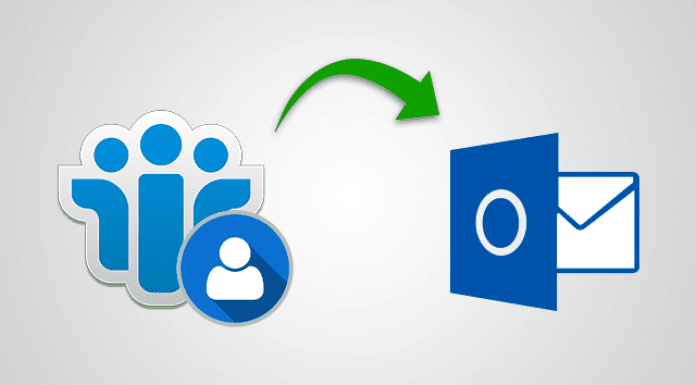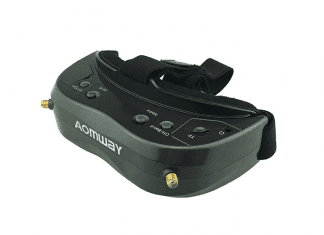Hide your online identity, make yourself anonymous, are some of the shiny and magnetic headlines that you commonly encounter while browsing the internet or consuming online media. VPN services use such attractive terms to question your online privacy and how secure your online presence is. In the last two decades, the number of internet users has been exponentially increased. This drastic increase has shown us the importance of one extremely important thing and that is Privacy. These VPN services claim to protect you from being watched by ISP, protect you from online thefts, make you anonymous. While this claim is very well true but to what extent. There is a lot that you do not know. If you are using a VPN then how secure it is? How exactly VPN protects the information? Which is the best VPN? Are some of the common questions that will be cleared by the end of this post.
Basic Working of a VPN
At this point you are already well aware of the basic working of a VPN and how does it work. Each time you turn on your VPN service it masks your IP address with some new IP address. Once the new IP is assigned all that you browse, watch, download are encrypted by the VPN.
All the browsing data is passed through the encrypted tunnel so no one can actually know what you are browsing or watching or downloading. But the one major thing that a user never gives attention to is that not all VPN services are the same. These VPNs differ in the encryption protocol they use. Furthermore, these protocols also affect the speed, data vulnerabilities, etc. If you are planning to buy a VPN service check out PrivacySharks to find out the list of best VPNs and learn more about online Privacy.
How to Make Sense of VPN Encryption: Pick the Best VPN
Understanding VPN Encryption?
From the above paragraph, there are two things that you get to know that VPN majorly is all about the encryption protocols. Let’s see what VPN encryption is and how does it work.
Encryption is simply a process, in this process all the readable information is converted to an unreadable form; this unreadable data is now called encrypted data/information. The encryption process also includes keys, these keys are used to decrypt the information.

How Does it Work?
Now that you know what the encryption process is let’s dig deeper. When you send this encrypted information to an authorized party and in the middle, someone tries to track or collect the information. They can not understand the information because it is encrypted. However, when the information reaches the authorized party they can use the keys and the data becomes readable to them. It might seem like a hefty process but it is not; almost all things are automated. To get a clearer picture of this process below goes through the below points.
- You enter a website address, the data is transferred through the protected protocol
- The website accepts the request and the data is decrypted through the protocol
- Often this sending and accepting request this called a handshake
- Also, all the data that is transferred in the session is completely encrypted by the protocol
It all boils down to the protocol and the level of encryption. A couple of VPN services might use the same protocol but the level of security can be configured according to them. Some VPN services may give you very fast download and upload speeds; some VPN service put their focus on the security and privacy of the users.
VPN Encryption Protocols: Choosing a Suitable VPN Service
By now you have a very good idea about encryption, its process, and its working. Now let’s focus on the encryption protocols types, differences, and which is best for online anonymity.
As of now, three industry-standard protocols are used widely by VPN services. All three are pretty secure and reliable. The name of these protocols is as follows.
- OpenVPN
- IKev2/IPSec
- Wireguard
If you ask among the above three which will be best then the answer will be OpenVPN protocol.
There are some other protocols as well which are not considered to be much secure, these protocols are not only vulnerable but also considered very slow. The name of these protocols is as follows.
- SoftEther
- SSTP
- L2TP/IPSec
- PPTP
No matter how secure the VPN tries to convey its encryption and protection from online surveillance, if the service is using a weak protocol there is always a chance of getting your privacy leaked.
Once you are aware of the protocol the next thing to look for is how the VPN service has configured the protocol. When it comes to the information or the data that you transfer there are several protection algorithms used. These are called Ciphers.
Ciphers
Consider cipher a formula or algorithm through which the encryption takes place. These ciphers vary according to their formula strength and the keys. Furthermore, these ciphers depending upon the strength also affect the overall speed of data transfer.
In simple terms, strong algorithm strength takes larger calculation, encryption, and decryption time in a session. A VPN service may configure and use suitable algorithms to make the balance between security and speed. There are three majorly and widely used ciphers.
- AES
- Blowfish
- Camellia
Among all the three AES 256 bits is considered to be the gold standard.
Combined with the protocols a VPN is formed. Now you have all the required knowledge to choose a VPN service that is suitable for you.
Conclusion:
Choosing a VPN is more like choosing the amount of vulnerability to your privacy. While most of the big VPN services provide you with a great balance of privacy and speed. Some may focus on one over the other.
In this article, we have gone through several aspects of VPN. Hopefully, this article has given you a closer look at how these VPN services work especially they secure your connection and data with encryption.









![[Buy Now] ENZ X36S Review Gaming Laptop (Buying Guide) ENZ X36S](https://www.techinpost.com/wp-content/uploads/2017/11/image001-7-324x235.png)
